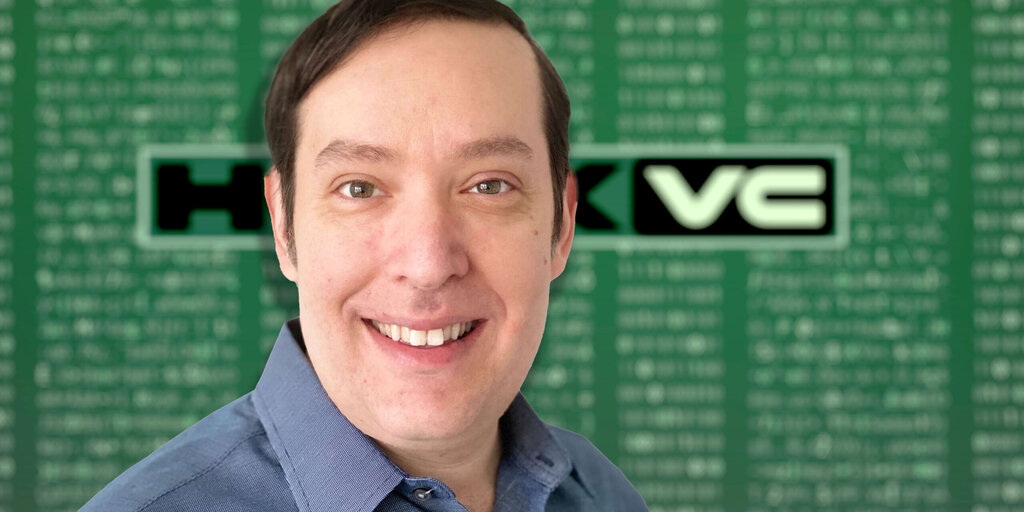Having weathered “at least three bull-to-bear-market cycles,” Web3 venture capital firm Hack VC is committed to staying the course, the company said yesterday announcing its first venture fund. The company says it raised $150 million for the fund “opportunistically, in a bear market.”
The venture fund raise follows Hack VC’s initial $200 million crypto fund raise, which closed in February 2022. Combined with other investment vehicles, the firm’s total assets under management now exceeds $425 million.
Co-founders and managing partners Alex Pack and Ed Roman said they are used to facing down doubters.
“Every cycle, we dealt with institutional investors dismissing the very idea that web3 is investable,” they wrote on the Hack VC blog. ”If we had a Bitcoin for every time we’ve been asked ‘Where are the use cases?’ and ‘Isn’t crypto illegal?’ we would be richer than Gary Gensler by now.”
But through thick and thin, builders kept building, and Hack VC kept investing.
“Our bias as a firm is to invest in technical infrastructure—the technical picks and shovels to help build blockchains are the core focus of what we do,” Roman told Decrypt. “That’s because we are ourselves developers, and we’re technical, and we think that that’s the base layer that you need to build longer-term applications.”
Roman declined to name participants in the venture fund for compliance reasons, but said its “investors include some of the largest US pensions funds, endowments, and foundations.”
Investment firm Hack VC is diving deeper into the blockchain and crypto world with the announcement of a new $200 million fund focused on early-stage investments in the space.
The $200 million Crypto Seed Fund will be co-led by Hack VC Managing Partners Alex Pack and Ed Roman, and is backed by Andreessen Horowitz’s Marc Andreessen and Chris Dixon, Sequoia Capital, Fidelity, Accolade Partners, and Digital Currency Group, among others.
Hack VC plans to use the funds across the crypto and blockchai…
Hack VC portfolio companies include re-staking security blockchain Eigenlayer, stablecoin lending platform Goldfinch, enterprise digital asset finance firm Bitwave, and Bitcoin staking startup Babylon. (Disclosure: HackVC is one of 22 strategic investors in Decrypt.)
Hack VC built its name among the technical set by hosting developer conferences and hackathons. The gatherings have drawn over 135,000 attendees from over 150 countries over nine years, Roman said, with its flagship Hack.Summit() event coming up in April in Hong Kong.
With the new venture fund, Hack VC is declaring a new up-cycle in the crypto and Web3 space.
“We are planting a flag as unwavering long-term believers in Web3, and committing to funding even more of the core blockchain technology that we have been investing in for so long,” Pack and Roman wrote.
Roman explained that blockchain security is a major focus of the firm.
“As Web3 grows, there are going be more application developers coming into Web3, and they are going to need to be building on a stable base of technologies, technology that isn’t as vulnerable to hacks,” he told Decrypt. “We’ve seen billions of dollars in the last few years lost to [hacks], so that’s a category that we focus a lot on: making blockchains more scalable, increasing performance, and increasing security on blockchain.”
Beyond security, Hack VC is looking at two other pillars in the Web3 space: DeFi and AI.
“DeFi right now is not quite as valuable of a category as infrastructure, but we think that is probably a temporary phenomenon,” Roman said.
”Look at the history of venture capital, look at Web2 venture capital, and embedded finance and embedded FinTech [financial technology] has been one of the hottest categories in Web2 investing for many years,” he explained. “There’s a good reason for this: you’re in the flow of payments, there’s lots of ways you can monetize that, and it’s capital efficient… it’s also very [business-to-business] in focus, which is all the more reliable,” he said.
“We think a lot of those trends and patterns will also start to emerge in Web3,” Roman noted.

The mainstream push for artificial intelligence has prompted many investors to shift their focus away from cryptocurrency and instead invest in generative AI startups, hoping to find the next Google Bard or OpenAI’s ChatGPT.
While speculators bet on the next big thing, however, Google Cloud’s Engineering Director of Web3, James Tromans, says the global tech giant aims to bridge the gap between AI and Web3 with an eye toward the future and digital ownership.
“Web3 is not so much about keeping you…
As for the recent surge in interest in Web3 gaming and the persistence of NFT projects, Roman said that consumer-facing technology—which often struggles with user acquisition—is often outside of the Hack VC wheelhouse.
“It’s less on gaming and consumer, and it’s more on kind of tech infrastructure,“ he clarified. “The category of investment might be considered by some investors to be a little bit kind of boring—infrastructure and DeFi rather than games—but we think that from an investment point of view, those are more reliable businesses and more predictable.”
Could NFTs make a comeback?
”We think that there might be, though the long tail of NFT’s have suffered in terms of their prices, a lot of them are basically worthless at this point,” Roman said. “But ‘blue chip NFTs’ still have value, and some of them have held up, so that still may come back—it’s probably too early to tell.”
To be sure, the front end of Web3 tech could use a lot of help. The current state of the art in Web3, the Hack VC co-founders observed, is comparable to the internet in the mid-1990s. A connected world was clearly inevitable back then, but the technology was scarce, complicated, and expensive.
“Like the Internet pre-Windows 95 and pre-Netscape, Web3 is barely usable for its existing users and downright unusable for the mainstream,” Hack VC said. “Web3 needs an infrastructural paradigm shift across scalability, security, and usability before it is ready for prime time.”
Sensing that the next Google, Microsoft, or Amazon is already out there, the company wants to “invest at the earliest possible stages” and courts founders with Hack.Labs(), an in-house, full-stack tech platform to bridge the gap from GitHub to the mainstream marketplace.
